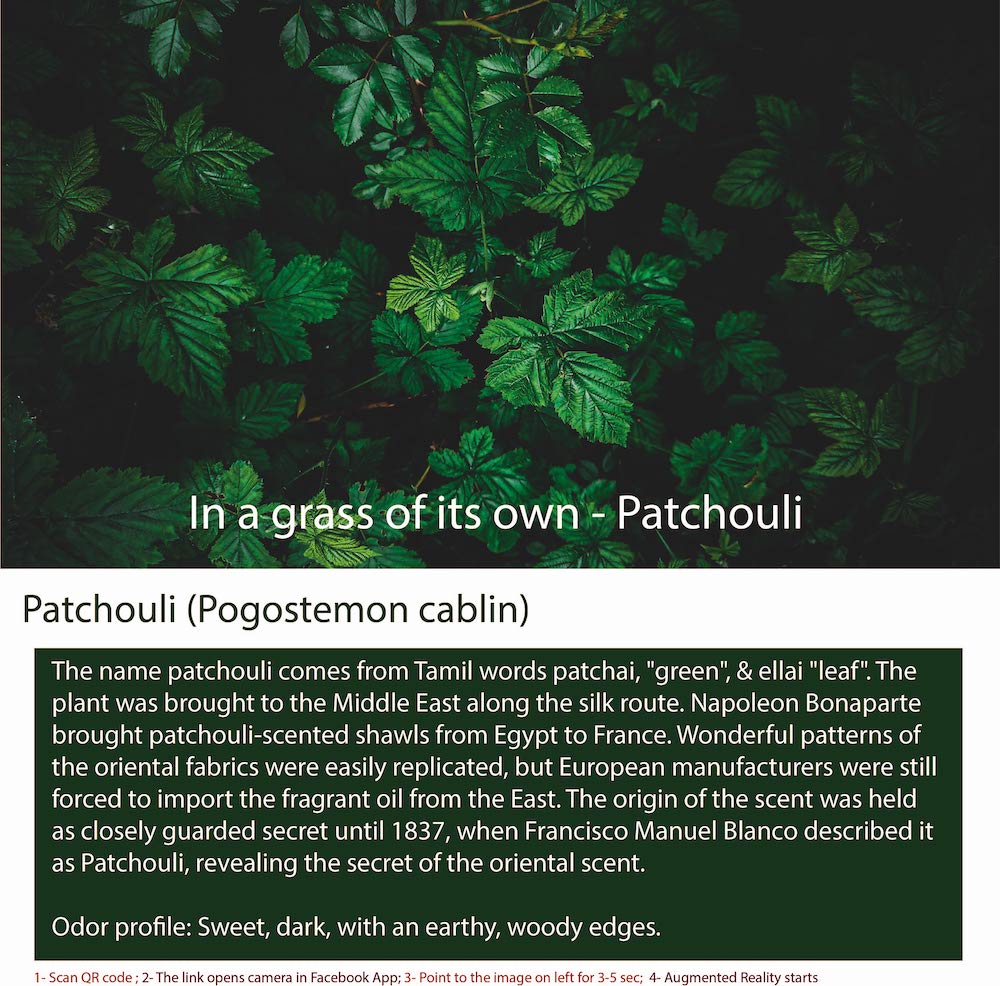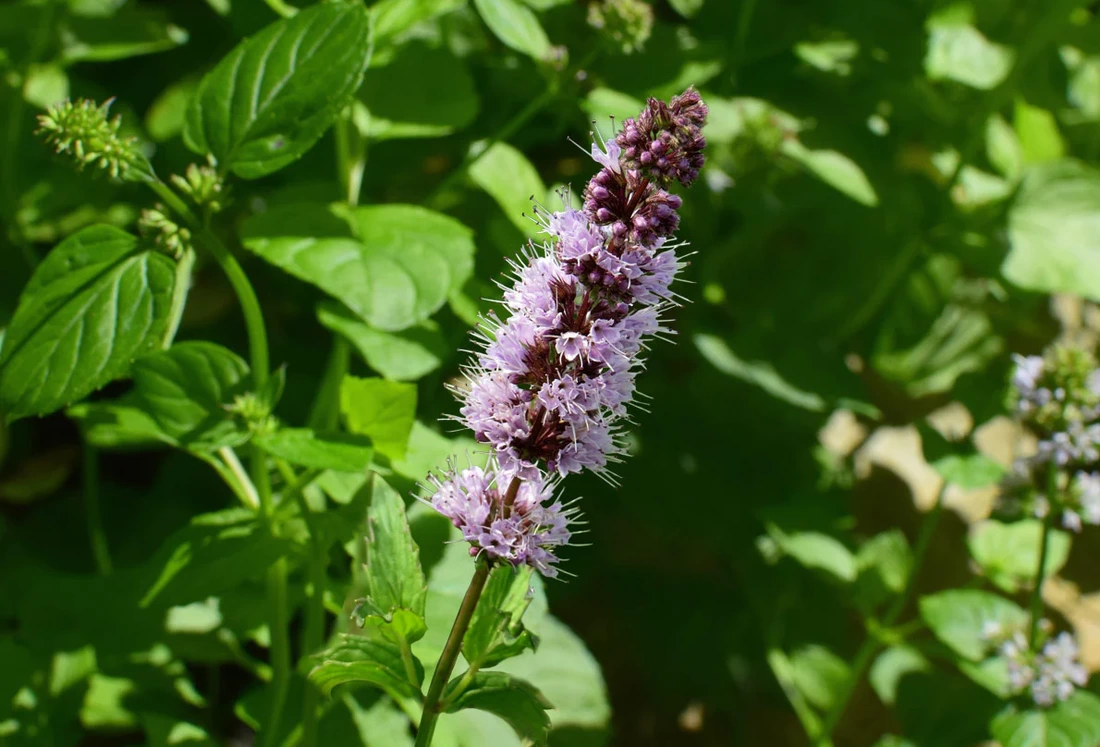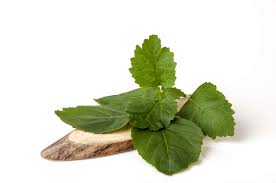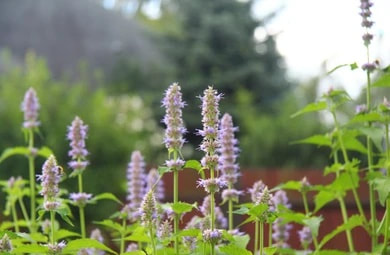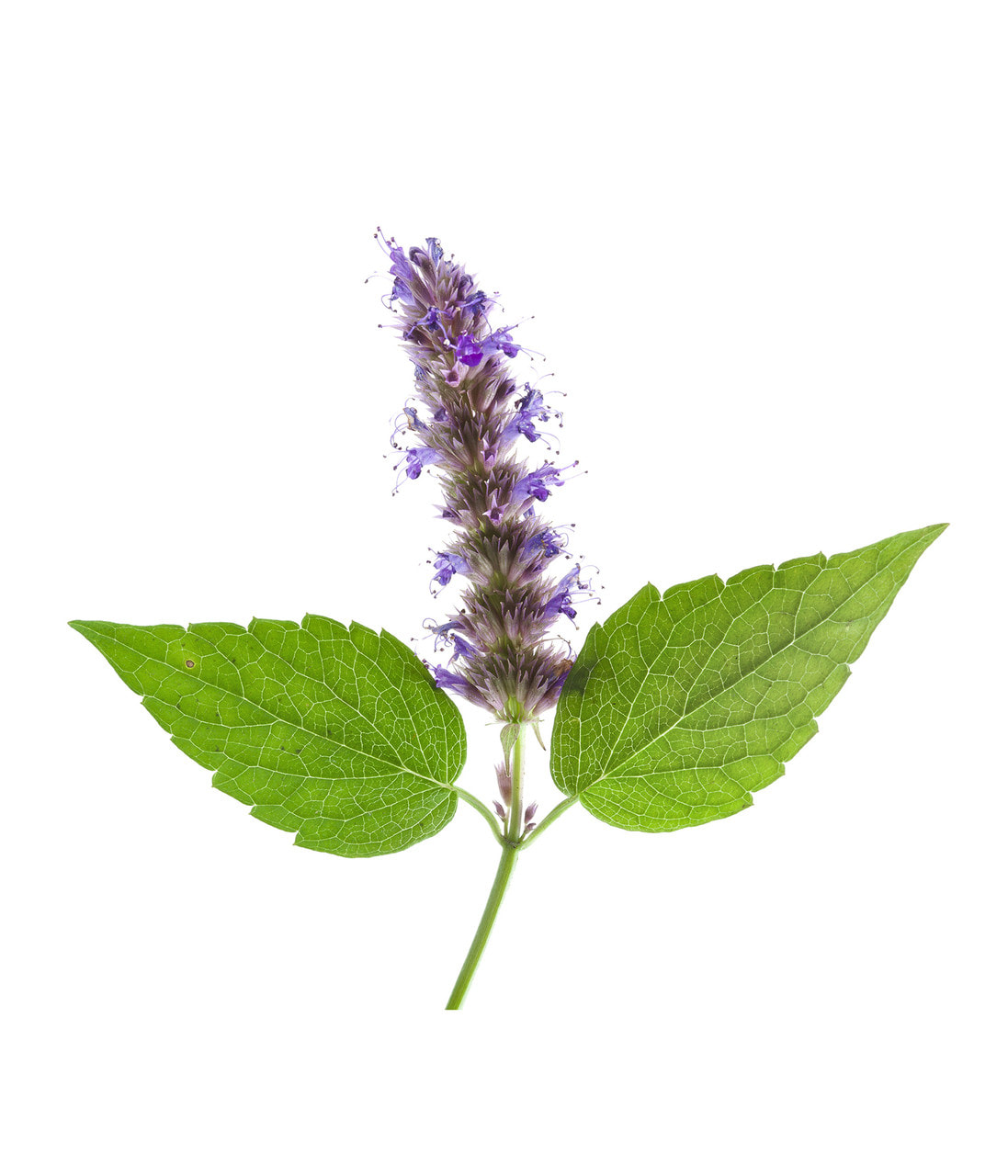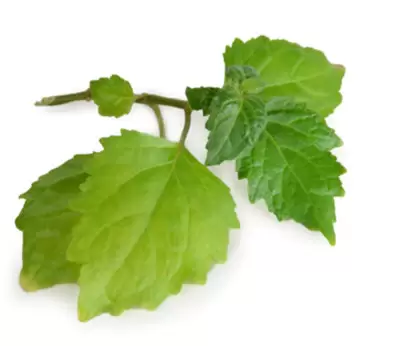Unveiling Our Earthly Musky Herbal Perfume
Patchouli: The Earthy Elixir of Fragrance, Wellness, and Folklore
Introduction: Patchouli, with its distinct and captivating aroma, is a renowned botanical treasure known for its rich history and versatile applications. Scientifically known as Pogostemon cablin, this fragrant herb belongs to the Lamiaceae family and has been cherished for centuries for its potential therapeutic properties and use in perfumes and fragrance. From its earthy and musky scent to its potential benefits in therapeutic oils and traditional medicine, patchouli is more than just a fragrant herb. This essay delves into the captivating world of patchouli, encompassing its presence in perfumes, therapeutic oils, food, medicinal systems, historical significance, and intriguing fun facts about this extraordinary and alluring plant.
The Enchantment of Patchouli: Patchouli is renowned for its strong and distinct aroma, which can be described as earthy, musky, and woody with sweet undertones. The fragrance of patchouli is captivating and enduring, making it a popular choice in the world of perfumery.
Perfumes and Fragrance: Patchouli is one of the most iconic ingredients in perfumery. Its deep and rich scent adds a touch of mystery and sensuality to fragrance compositions. Patchouli is often used as a base note, providing a warm and earthy foundation for many perfumes. It blends well with other essential oils and is often combined with floral, citrus, or spicy scents to create unique and sophisticated fragrances.
Therapeutic Oils and Aromatherapy: Patchouli essential oil is highly valued in aromatherapy for its potential calming and grounding effects. It is believed to promote relaxation, reduce stress and anxiety, and uplift the mood. The aroma of patchouli is said to have a stabilizing and harmonizing effect on emotions, making it a popular choice in aromatherapy practices.
Medicinal Applications: Patchouli has a long history of use in traditional medicine systems. It is believed to have potential anti-inflammatory, antiseptic, and antimicrobial properties. Patchouli oil is sometimes used in natural skincare products to support healthy skin, reduce acne, and alleviate skin irritations. Additionally, patchouli is used in some traditional remedies to alleviate headaches, nausea, and digestive issues.
Culinary Uses: Patchouli is not commonly used as a culinary herb, and its essential oil should not be ingested. However, in certain Asian cuisines, patchouli leaves may be used as a flavoring agent for certain dishes, imparting their unique earthy taste to the food.
Historical Significance: Patchouli has a rich history dating back to ancient times. It was widely used in traditional Chinese and Indian medicine for its potential healing properties. Patchouli became popular in the West during the 1960s and 1970s when it became associated with the counterculture movement. It was used as an incense and perfume by hippies and was considered a symbol of freedom and rebellion.
Fun and Crazy Facts:
Patchouli, with its alluring and earthy fragrance, is a captivating and cherished botanical wonder. From its presence in perfumes to its potential uses in therapeutic oils and traditional medicine, patchouli continues to enchant and inspire with its distinct aroma. As we immerse ourselves in the earthy elixir of patchouli and explore its rich historical significance, we are reminded of the enduring allure and versatility of this remarkable herb that has left an indelible mark in the world of fragrance and wellness.
Introduction: Patchouli, with its distinct and captivating aroma, is a renowned botanical treasure known for its rich history and versatile applications. Scientifically known as Pogostemon cablin, this fragrant herb belongs to the Lamiaceae family and has been cherished for centuries for its potential therapeutic properties and use in perfumes and fragrance. From its earthy and musky scent to its potential benefits in therapeutic oils and traditional medicine, patchouli is more than just a fragrant herb. This essay delves into the captivating world of patchouli, encompassing its presence in perfumes, therapeutic oils, food, medicinal systems, historical significance, and intriguing fun facts about this extraordinary and alluring plant.
The Enchantment of Patchouli: Patchouli is renowned for its strong and distinct aroma, which can be described as earthy, musky, and woody with sweet undertones. The fragrance of patchouli is captivating and enduring, making it a popular choice in the world of perfumery.
Perfumes and Fragrance: Patchouli is one of the most iconic ingredients in perfumery. Its deep and rich scent adds a touch of mystery and sensuality to fragrance compositions. Patchouli is often used as a base note, providing a warm and earthy foundation for many perfumes. It blends well with other essential oils and is often combined with floral, citrus, or spicy scents to create unique and sophisticated fragrances.
Therapeutic Oils and Aromatherapy: Patchouli essential oil is highly valued in aromatherapy for its potential calming and grounding effects. It is believed to promote relaxation, reduce stress and anxiety, and uplift the mood. The aroma of patchouli is said to have a stabilizing and harmonizing effect on emotions, making it a popular choice in aromatherapy practices.
Medicinal Applications: Patchouli has a long history of use in traditional medicine systems. It is believed to have potential anti-inflammatory, antiseptic, and antimicrobial properties. Patchouli oil is sometimes used in natural skincare products to support healthy skin, reduce acne, and alleviate skin irritations. Additionally, patchouli is used in some traditional remedies to alleviate headaches, nausea, and digestive issues.
Culinary Uses: Patchouli is not commonly used as a culinary herb, and its essential oil should not be ingested. However, in certain Asian cuisines, patchouli leaves may be used as a flavoring agent for certain dishes, imparting their unique earthy taste to the food.
Historical Significance: Patchouli has a rich history dating back to ancient times. It was widely used in traditional Chinese and Indian medicine for its potential healing properties. Patchouli became popular in the West during the 1960s and 1970s when it became associated with the counterculture movement. It was used as an incense and perfume by hippies and was considered a symbol of freedom and rebellion.
Fun and Crazy Facts:
- Patchouli in Fashion: During the counterculture era, patchouli essential oil was sometimes used to scent clothing and accessories as a way to mask the smell of smoke and other odors.
- Perfume Fixative: Patchouli's strong and long-lasting fragrance makes it an excellent fixative in perfumery, helping other scents in a perfume blend last longer.
- Patchouli Plant Care: Patchouli is a tender perennial that thrives in warm and tropical climates. It requires well-drained soil and plenty of sunlight to grow successfully.
- Spiritual and Magical Uses: Patchouli has been used in various spiritual and magical practices for its grounding and protective properties.
- Patchouli and Insect Repellent: In some cultures, patchouli has been used as a natural insect repellent to keep mosquitoes and other pests at bay.
Patchouli, with its alluring and earthy fragrance, is a captivating and cherished botanical wonder. From its presence in perfumes to its potential uses in therapeutic oils and traditional medicine, patchouli continues to enchant and inspire with its distinct aroma. As we immerse ourselves in the earthy elixir of patchouli and explore its rich historical significance, we are reminded of the enduring allure and versatility of this remarkable herb that has left an indelible mark in the world of fragrance and wellness.
To experience augmented reality, please open the Facebook-app using QR code and point to the image below
Embrace the Allure of Patchouli Aroma
Patchouli is a perennial herb in the mint family, native to tropical regions of Asia. The plant is grown for its fragrant leaves, which are used to produce essential oil. The essential oil is steam distilled from the dried leaves of the patchouli plant, and it has a strong, musky, and earthy scent.
Patchouli oil has been used for centuries in traditional medicine and perfumery. It has a grounding and relaxing effect on the mind and body, and it is often used in aromatherapy to help alleviate stress, anxiety, and depression. It is also used as an insect repellent and to freshen up musty-smelling clothes and linens.
Patchouli oil is also used in perfumes, colognes, and other fragranced products, such as candles and soaps, as it blends well with other essential oils, such as lavender, sandalwood, and bergamot. It is particularly popular in the hippie and bohemian subcultures, where it is associated with the counterculture movement of the 1960s and 1970s.
In the field of perfumery, Patchouli is considered as a base note, meaning it has a strong and long-lasting aroma, it also used as a fixative, which is a substance that helps to prolong the life of a fragrance. Patchouli is also often used as a component in oriental and woody perfumes.
Famous perfumes and attar that use patchouli are Tom Ford's Black Orchid, Chanel's No.5, and Jo Malone Peony and Blush Suede.
Patchouli oil has been used for centuries in traditional medicine and perfumery. It has a grounding and relaxing effect on the mind and body, and it is often used in aromatherapy to help alleviate stress, anxiety, and depression. It is also used as an insect repellent and to freshen up musty-smelling clothes and linens.
Patchouli oil is also used in perfumes, colognes, and other fragranced products, such as candles and soaps, as it blends well with other essential oils, such as lavender, sandalwood, and bergamot. It is particularly popular in the hippie and bohemian subcultures, where it is associated with the counterculture movement of the 1960s and 1970s.
In the field of perfumery, Patchouli is considered as a base note, meaning it has a strong and long-lasting aroma, it also used as a fixative, which is a substance that helps to prolong the life of a fragrance. Patchouli is also often used as a component in oriental and woody perfumes.
Famous perfumes and attar that use patchouli are Tom Ford's Black Orchid, Chanel's No.5, and Jo Malone Peony and Blush Suede.
The Power of Earthly Musk in Perfume
Patchouli fun facts
- Patchouli has been used for centuries in traditional medicine in Asia, particularly in China and India, where it was believed to have healing properties for a variety of ailments, such as skin conditions, wounds, and digestive issues.
- Patchouli was used to scent textiles, particularly in the 19th century, when it was a popular ingredient in perfumes and colognes. It was also used to scent shawls and other fabrics that were exported from India to Europe, where it became popular among the wealthy.
- Patchouli was commonly associated with the hippie and bohemian subcultures of the 1960s and 1970s. It was popular among young people who were rejecting traditional societal norms and embracing a more free-spirited lifestyle.
- Patchouli oil is often used in perfumes and colognes to add a musky, earthy, and grounding element to the fragrance. It is also used as a fixative to prolong the life of a fragrance.
- Patchouli leaves are dried before they are used to produce essential oil. It's said that the drying process enhances the earthy and musky aroma of the leaves.
- Patchouli can be used as an insect repellent, it's said to repel mosquitoes, moths, and other insects.
- Patchouli essential oil is used in aromatherapy to help alleviate stress and anxiety, it's also said to have a grounding effect that helps to balance emotions.
- Patchouli is one of the most popular scent in the perfume industry, it's used in many perfumes and colognes, particularly in the oriental and woody families.
- Patchouli oil is also used in the production of soaps, candles, and other personal care products, as it is believed to have a grounding effect on the mind and body.
Exploring the Patchouli Fragrance
Patchouli has been referenced in various forms of pop culture over the years. Some examples include:
- Music: Patchouli has been referenced in many songs, most notably in the 1960s and 1970s. The song "Patchouli Joe" by John Prine is an example of a song that references patchouli.
- Film: Patchouli oil has been referenced in several movies, particularly those set in the 1960s and 1970s, such as the movie "Easy Rider" (1969) where it was mentioned as a symbol of counterculture.
- Fashion: Patchouli oil has been associated with bohemian fashion, particularly in the 1960s and 1970s, as it was worn by many young people who were rejecting traditional societal norms and embracing a more free-spirited lifestyle.
- Literature: Patchouli has been referenced in literature, most notably in the works of Jack Kerouac, Allen Ginsberg and other beat generation writers.
- Art: Patchouli is often used as an inspiration for art, particularly in the form of paintings and sculptures.
- Pop culture: Patchouli is often referenced in pop culture, particularly in the form of memes and jokes. The scent is often associated with counterculture, a symbol of the hippie movement and often used as a punchline for jokes about the era.
- In recent years, patchouli has made a comeback in perfumery, it's considered as a classic, timeless and versatile fragrance. Many perfumes and colognes have been released with Patchouli as a key ingredient.
Aromatic Patchouli Scents
Patchouli has a strong, musky, earthy scent that is often described as woodsy or musty. It is a base note in perfumery, meaning that it has a strong and long-lasting aroma, and it is often used to add depth and complexity to fragrances.
In aromatherapy, patchouli essential oil is believed to have a grounding effect on the mind and body. It is said to help alleviate stress and anxiety, and it is believed to have a balancing effect on emotions. It is also said to have a calming effect on the mind and to help promote feelings of peace and tranquility.
Some of the other scent notes associated with patchouli include:
In aromatherapy, patchouli essential oil is believed to have a grounding effect on the mind and body. It is said to help alleviate stress and anxiety, and it is believed to have a balancing effect on emotions. It is also said to have a calming effect on the mind and to help promote feelings of peace and tranquility.
Some of the other scent notes associated with patchouli include:
- Woody: Patchouli has a strong, woody aroma that is often associated with the forest or the woods.
- Earthy: Patchouli has a deep, earthy aroma that is often associated with the soil or the earth.
- Spicy: Some people describe patchouli as having a spicy aroma, with notes of pepper and clove.
- Sweet: Patchouli can also have a sweet aroma, with notes of vanilla and caramel
- Herbal: Patchouli is also associated with herbal scent, the smell can be compared to mint or sage.
Patchouli-Inspired Perfume Bottles
Many famous perfume brands have used patchouli as an ingredient in their fragrances. Here is a non-exhaustive list of some of the well-known brands that use patchouli in their perfumes:
- Chanel: Chanel No. 19 is a classic fragrance that features patchouli as one of its key ingredients.
- Dior: Dior J'adore is a popular fragrance that uses patchouli in its composition.
- Yves Saint Laurent: Yves Saint Laurent Opium is a classic fragrance that features patchouli as one of its main ingredients.
- Tom Ford: Tom Ford's Black Orchid is a popular fragrance that features patchouli as one of its key notes.
- Gucci: Gucci Rush is a popular fragrance that features patchouli as one of its key ingredients.
- Givenchy: Givenchy Ange ou Démon is a popular fragrance that features patchouli as one of its key ingredients.
- Jo Malone: Jo Malone Peony & Blush Suede is a popular fragrance that features patchouli as one of its key ingredients.
- Versace: Versace Eros is a popular fragrance that features patchouli as one of its key ingredients.
- Estée Lauder: Estée Lauder Beautiful is a classic fragrance that features patchouli as one of its key ingredients.
- Lancôme: Lancôme Tresor is a classic fragrance that features patchouli as one of its key ingredients.
- Giorgio Armani: Giorgio Armani Code is a popular fragrance that features patchouli as one of its key ingredients.
- Burberry: Burberry Brit is a popular fragrance that features patchouli as one of its key ingredients.
- Prada: Prada Luna Rossa is a popular fragrance that features patchouli as one of its key ingredients.
- Bvlgari: Bvlgari Black is a popular fragrance that features patchouli as one of its key ingredients.
- Hermès: Hermès Un Jardin sur le Nil is a popular fragrance that features patchouli as one of its key ingredients.
Embrace the Beauty of Nature
Patchouli has a long history of use in aromatherapy, dating back to ancient civilizations in India and China. The plant was traditionally used to make perfumes, incense, and other fragrant products.
In India, patchouli was considered to be a sacred plant and was used in religious rituals. The leaves of the plant were often used to make garlands and were also used to scent clothes and linens.
In China, patchouli was used in traditional medicine to treat a wide range of ailments, including fever, headaches, and skin conditions. The essential oil was also believed to have a calming effect on the mind and to promote feelings of peace and tranquility.
Patchouli was also used in traditional Ayurvedic medicine in India. It was believed to have a balancing effect on the body and mind, and was used to treat a wide range of conditions, including anxiety, depression, and skin conditions.
During the 1960s and 1970s, patchouli became associated with the counterculture movement and was often used as a fragrance by hippies. This association with the counterculture movement helped to popularize the use of patchouli in perfumery and aromatherapy.
Today, patchouli essential oil is widely used in aromatherapy and is believed to have a grounding effect on the mind and body. It is said to help alleviate stress and anxiety, and it is believed to have a balancing effect on emotions. It is also said to have a calming effect on the mind and to help promote feelings of peace and tranquility.
In India, patchouli was considered to be a sacred plant and was used in religious rituals. The leaves of the plant were often used to make garlands and were also used to scent clothes and linens.
In China, patchouli was used in traditional medicine to treat a wide range of ailments, including fever, headaches, and skin conditions. The essential oil was also believed to have a calming effect on the mind and to promote feelings of peace and tranquility.
Patchouli was also used in traditional Ayurvedic medicine in India. It was believed to have a balancing effect on the body and mind, and was used to treat a wide range of conditions, including anxiety, depression, and skin conditions.
During the 1960s and 1970s, patchouli became associated with the counterculture movement and was often used as a fragrance by hippies. This association with the counterculture movement helped to popularize the use of patchouli in perfumery and aromatherapy.
Today, patchouli essential oil is widely used in aromatherapy and is believed to have a grounding effect on the mind and body. It is said to help alleviate stress and anxiety, and it is believed to have a balancing effect on emotions. It is also said to have a calming effect on the mind and to help promote feelings of peace and tranquility.
Join Scentopia, Sentosa's latest tourist attraction wonderful orchid scent crafting, fragrance tour, bridal shower or corporate team building which includes perfume making onsite and offsite, beach activities and more. We also serve primary school learning journey, secondary students and pupil on industrial excursions. Know more about our orchids perfume bar or therapeutic orchid scents and other wellness aromas. Conatct Perfume workshop or book a scent crafting session here.

